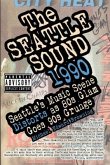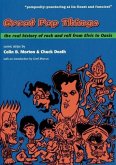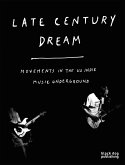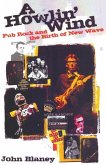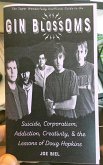The Seattle music scene burst onto the world stage as the 20th century ended. Despite what clueless media said, there never was one "Seattle Sound." But there was a Seattle attitude. The best of our bands weren't trying to break into the corporate rock pantheon but to demolish it. The Seattle Scene was about decentralizing culture, about honest heartfelt expression. You don't have to be from NY, LA or SF to make music or art. "You're the superstar," as Krist Novoselic says. This is the tale I relate in LOSER: The Real Seattle Music Story. Achingly detailed and lavishly illustrated, it chronicles two decades of pre-punk, punk, post-punk, and neo-punk music in Seattle and the Northwest. It includes all the bands who made it big and plenty who didn't but are still worth remembering. It tells the interconnected origins and spectacular rise of Nirvana, Pearl Jam, Soundgarden, Alice in Chains, Hole, Screaming Trees, Mudhoney, TAD, the Posies, Love Battery, Gas Huffer, Seven Year Bitch, Flop, Fastbacks, the Supersuckers, Sir Mix-A-Lot, Built to Spill, Bikini Kill, Sky Cries Mary, the Young Fresh Fellows, Beat Happening, the Presidents of the United States of America, and all your other early-'90s Seattle music favorites. Originally published in late 1995, it's back in a (slightly late) twentieth anniversary edition. It's got over 240 big pages with over 800 illustrations. The new version has even more pix and stories, an updated discography, and many "whatever became of" listings. LOSER remains the most lavish and detailed account of a phenomenon that rocked the world. - Selections from LOSER The spirit of the Seattle scene: If there's a common message among these bands, it's that your life and your culture count. You'll find this message in almost everything done here, from Sir Mix-A-Lot's tales of young black men who don't sell drugs or shoot each other, to Bikini Kill's anthems about surviving abusive relationships with pride intact, to Nirvana's elliptical pop songs about emotional confusion.You don't have to be from a media capital, you don't have to belong to the proper demographics, to have something worth saying. Make your own scene; don't conform to anybody. The Bird, Seattle's first punk club: It was a dark, narrow, warehouse-like space with a makeshift stage and a second-hand PA. As many as 200 crowded into the room, whose official capacity was 99. Graphic designer Art Chantry later speculated that "the entire audience on opening night eventually formed their own bands." The U-Men, perhaps the first true 'grunge' band: They were slow, harsh, and (in the early days) clumsy players. They invoked a Dionysian orgy of mutual aggression and abandon that no cartoon-devil metal band could match. Kurt Cobain's early days: The early ['50s] rockers had been white guys appropriating the hip-outcast status of blacks; Cobain was a straight guy appropriating the hip-outcast status of gays. He took the glam fascination with gay culture into the realm of teen vandalism, spraypainting "God Is Gay" and "Homo Sex Rules" around town just to infuriate the local rednecks. Sub Pop Records' early days: [Founders Bruce] Pavitt and [Jonathan] Poneman boasted publicly about making Seattle the music capital of the world. It's no exaggeration to say few people believed them at the time. Indie-rock moralism: In Seattle, it was OK to seek commercial success as long as you didn't "act like a rock star." In Olympia, you weren't even supposed to think of music as a career. To these folks, playing your own music to your friends was the only real reason to start a band.
Hinweis: Dieser Artikel kann nur an eine deutsche Lieferadresse ausgeliefert werden.
Hinweis: Dieser Artikel kann nur an eine deutsche Lieferadresse ausgeliefert werden.


